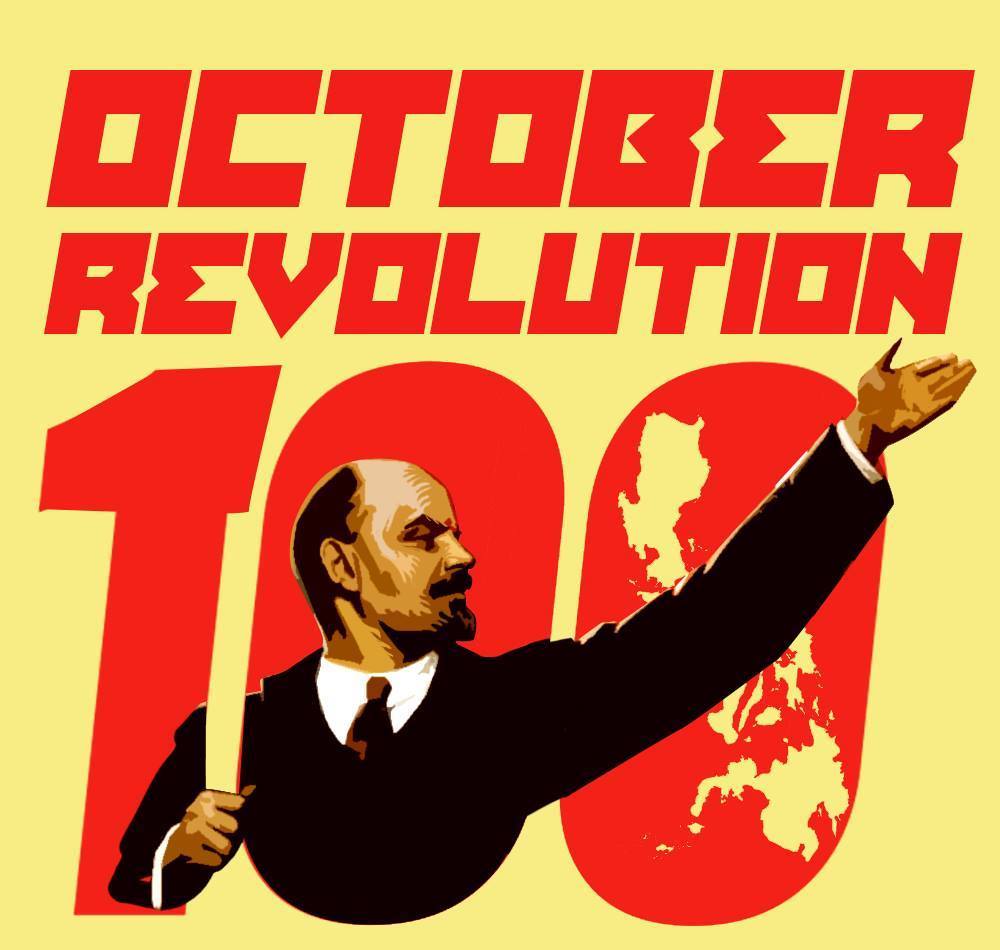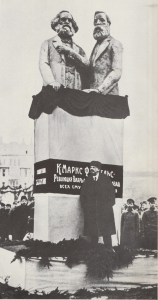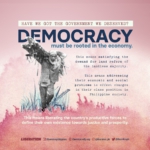The Ever-Relevant October Revolution

by Victoria dela Gente
This year marks the 100th anniversary of the October Revolution in Russia, which was led by Vladimir Lenin and Joseph Stalin. And perhaps people are pondering on its significance on the world

November 7, 1918
today, especially since the capitalist system is still reeling from the impact of the global economic-financial crisis, which imploded in 2008-2009, with no relief in sight. The crisis is clearly an indictment of capitalism even among mainstream capitalist economists and peoples, both in “developed” and “developing” countries are searching for an alternative.
It could be remembered that Russia, in the latter part of the 19th and early 20th century, was suffering from a debilitating crisis that had been brought about by the crisis of the world capitalist system, called the Long Depression, and the fetters of being a backward capitalist country with vestiges of feudalism. The world subsequently imploded into World War I, with Tsarist Russia joining the fray in an effort to claim a portion of the spoils of the war for the Tsar and the bourgeoisie.
The convulsions of Tsarist Russia resulted in two revolutionary uprisings: first in 1905—when workers and peasants holding a peaceful march were fired upon by Tsarist soldiers, thereby spurring the uprising—and then in February 1917. While the 1905 uprising ended in a tactical defeat for the Russian Communist Party (RCP), the February 1917 uprising resulted in a victory for the Party and the Russian people. However, right after the victory, the Kerenski government, which was a coalition of the bourgeoisie and the defeated aristocracy, betrayed the peoples of Russia. This prompted the RCP under the leadership of Lenin to call for the immediate launching in August of the second stage of the Russian revolution, the socialist revolution. By October 1917, the Russian people, under the leadership of the RCP, achieved victory.
Immediately thereafter, the Russian Soviet Government was attacked from within by the forces aligned with Trotsky and from without, by the remnants of the Tsarist Army, which was supported by imperialist countries that also launched invasion expeditions. Of course, the Russian people, under Lenin’s leadership of the RCP, defeated all these counter-revolutionary adventures.
And when the capitalist world imploded again in another crisis, which eventually gave rise to fascist forces and World War II, Russia, under the leadership of the RCP and Stalin, was in the process of socialist building and was developing rapidly into an economically powerful nation.
Under the leadership of the RCP, through the victorious October revolution, the Russian people demonstrated that the revolution against imperialism and domestic feudalism could succeed. It also proved that ushering in socialism would be beneficial to the people, most especially the poor majority.
The peoples of the USSR, through the leadership of Stalin, built socialism, making it one of the most powerful and prosperous nations in the world. More important was that the USSR, in building socialism, showed how to address social injustices and inequities and achieve social emancipation.
However, the history of the Russian revolution also showed how the former and the nascent ruling classes could betray the socialist principles and reverse the gains of socialist construction. After the death of Stalin and the takeover by Nikita Kruschov, revisionism became well entrenched up to the time socialism was formally abandoned under Gorbachev.
The oppressed people and nations of the world could draw lessons from the experiences of the Russian people, much like what the Chinese people did, under the leadership of Mao Ze Dong, before they were likewise overpowered by revisionist forces in China.
From a strategic perspective, the revolutions of the Russian and Chinese people constituted but one stage in the world socialist revolution. The proletariat of the world, while suffering tactical defeats through the reversals of socialism, could emerge even stronger, especially in the light of the crisis and widespread popular repudiation of the capitalist system today.
Having spurned modern revisionism, the Filipino people are in a strategic position to complete the national democratic revolution in the near future to persevere towards pursuing socialist revolution.


